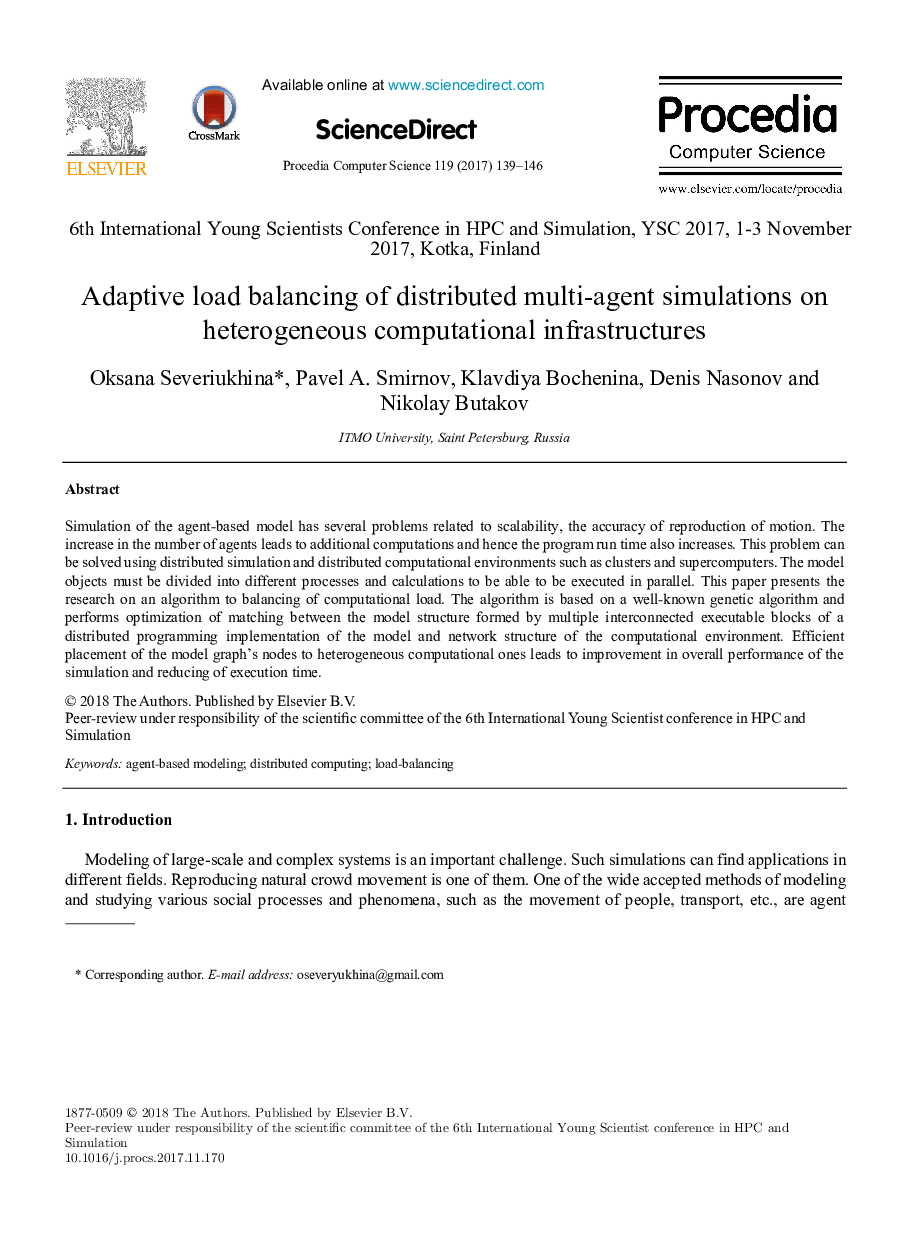| Article ID | Journal | Published Year | Pages | File Type |
|---|---|---|---|---|
| 6901829 | Procedia Computer Science | 2017 | 8 Pages |
Abstract
Simulation of the agent-based model has several problems related to scalability, the accuracy of reproduction of motion. The increase in the number of agents leads to additional computations and hence the program run time also increases. This problem can be solved using distributed simulation and distributed computational environments such as clusters and supercomputers. The model objects must be divided into different processes and calculations to be able to be executed in parallel. This paper presents the research on an algorithm to balancing of computational load. The algorithm is based on a well-known genetic algorithm and performs optimization of matching between the model structure formed by multiple interconnected executable blocks of a distributed programming implementation of the model and network structure of the computational environment. Efficient placement of the model graph's nodes to heterogeneous computational ones leads to improvement in overall performance of the simulation and reducing of execution time.
Related Topics
Physical Sciences and Engineering
Computer Science
Computer Science (General)
Authors
Oksana Severiukhina, Pavel A. Smirnov, Klavdiya Bochenina, Denis Nasonov, Nikolay Butakov,
